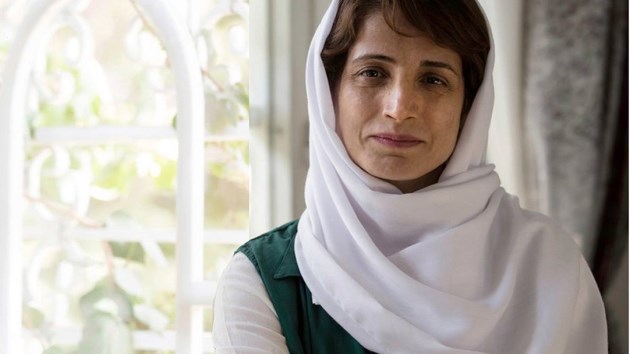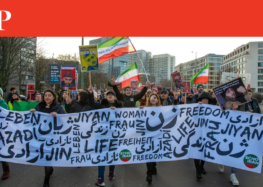Prominent Lawyer Says “Plan to Promote Virtue” Endangers Citizens and State
The prominent human rights lawyer Nasrin Sotoudeh spoke out strongly against the recent approval of the Plan to Promote Virtue and Prevent Vice, a Parliamentary bill which calls on Basij militias to enforce strict hijab (female dress) on all Iranian women, in a recent interview with the International Campaign for Human Rights in Iran.
The Plan was approved by Iran’s Guardian Council on April 22, sending the controversial bill on its way to becoming law.
In her comments to the Campaign, Sotoudeh expressed regret about the Guardian Council’s approval of the Plan. “Certainly, the presence of unofficial and unaccountable forces in any society could lead to catastrophes no one can account for or address. The approval of such plans puts both the existence of citizens and the state in danger. In fact this plan is both against the citizens and the state,” she said.
The bill was first introduced into the Iranian Parliament in June 2014. Despite criticism from civil activists in Iran and the Rouhani administration, Parliament subsequently approved the 24-article “Plan to Protect Promoters of Virtue and Preventers of Vice,” and sent it the Guardian Council for confirmation. The Guardian Council returned the Plan to Parliament to clarify 14 articles it deemed vague, and Parliament submitted clarifications on the articles. The bill was approved by Parliament in its final form on April 12, 2015. The Guardian Council announced on April 22 that it had found no conflicts between the Plan, Sharia laws, and the Iranian constitution, and it was hence enforceable as law, as Mehr News Agency reported.
“In the short run, putting such unlimited tools in the hands of individuals who are not legally accountable may lead to creating fear and terror in society; but over the long run, the nation will certainly not be able to cope with it psychologically, and will confront and object to it. Even now we witness such protests in the public arena. Therefore I believe that intensifying such an atmosphere and enforcing such plans in the society could lead to wider crises which we should prevent now,” Sotoudeh told the Campaign.
In October 2014, a series of acid attacks against women took place in the city of Isfahan. Many saw the attacks as a result of the Plan to Promote Virtue, especially its explicit call for the enforcement of hijab by volunteer Basij paramilitary forces. As detailed in the Campaign’s March 2015 report, Vigilante Violence: The Acid Attacks against Women in Iran and the State’s Assault on Women’s Rights, the Plan, as well as numerous pronouncements by state officials and high-level government-affiliated clerics promoting extra-judicial enforcement of “virtue,” created fertile ground for the acid attacks.
On October 22, 2014, a large group of Tehran citizens gathered peacefully outside Parliament to protest the acid attacks, the lack of judicial attention to identifying and pursuing suspects in the attacks, and the state’s concerted efforts to silence media coverage of the attacks. The protesters were beaten by security agents, dispersed with batons and tear gas, and several were arrested. Many civil and women’s rights activists have spoken and written of the dangers such legislation poses to the safety of all Iranian women, in addition to the violation of their basic rights, and have demanded the withdrawal of the Plan.







